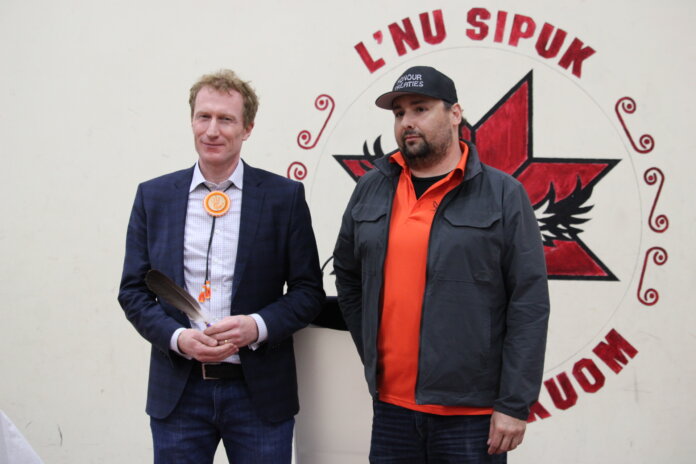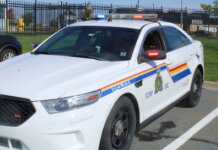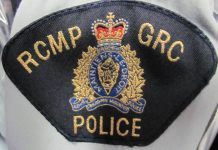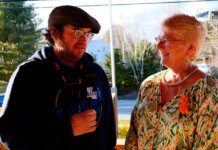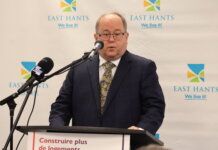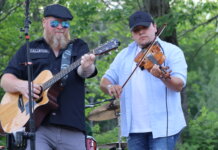SIPEKNE’KATIK: Funding that will see ground searches for unmarked graves at the former site of the Shubenacadie Residential School is a first step towards healing for survivors and families of those who attended school.
That sentiment was echoed by officials at press conference at LSK School in the Sipekne’katik First Nation on April 20.
Marc Miller, the Minister for Crown-Indigenous Relations, announced the federal government would invest $326,700 that will allow the ground searches for unmarked graves to resume at the school site, located adjacent the Shubenacadie River in Shubenacadie.
The funding comes from the Residential School Children’s – Community Support Funding Program and supports the First Nation’s “Shubenacadie Residential School Support Project for Sipekne’katik.”
What the funding will do will assist with the research, knowledge gathering, commemoration, memorialization, and fieldwork to be undertaken by Sipekne’katik First Nation.
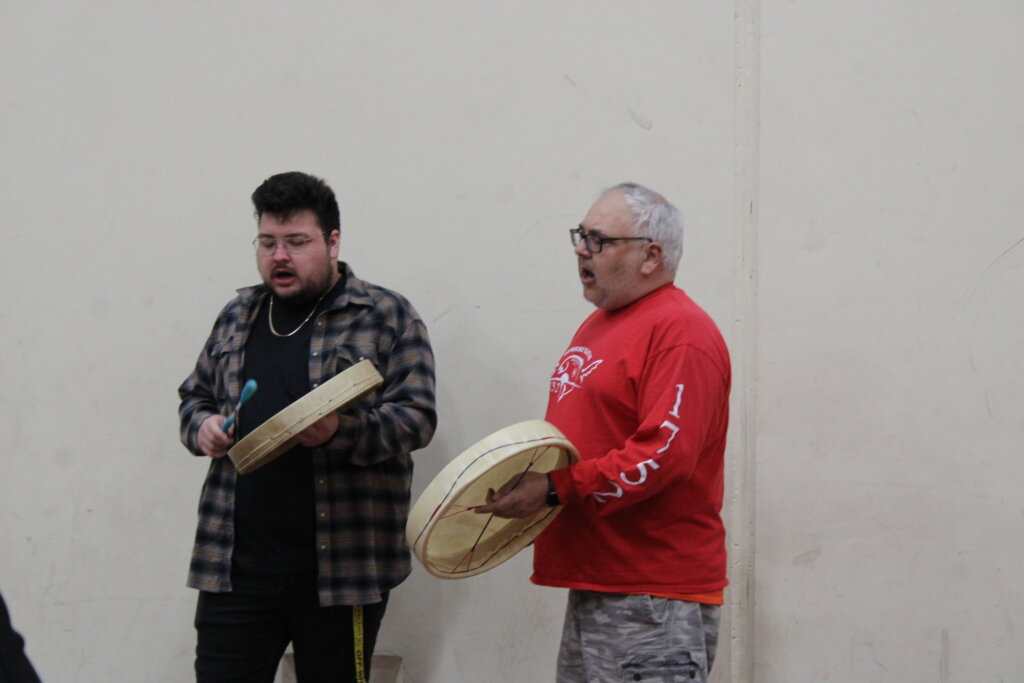
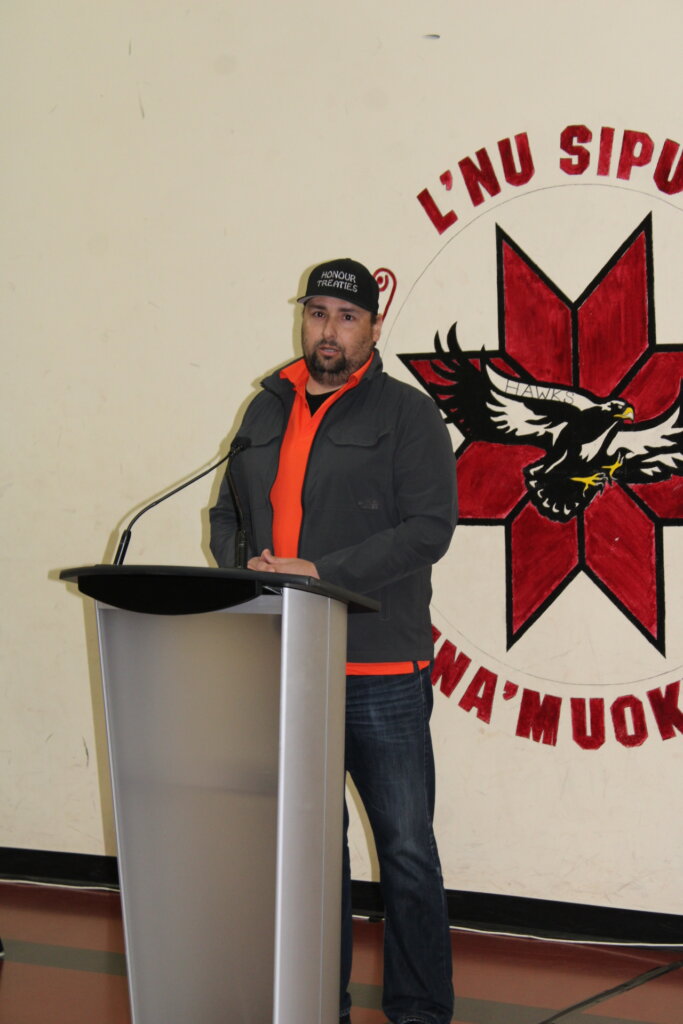
Chief Mike Sack reiterated to the public in the wider area who think that the history of residential schools in Canada were hundreds of years ago. They were not, he said.
“We are still dealing with the effects of it daily and our community has a rough struggle,” Sack told those gathered at the announcement.
He welcomed the funding, but added more work needs to be done to see the healing that is needed to be done in Indigenous communities across the country.
“I’m hoping we take bigger steps in the future,” Sack said.
The only institution of its type in Atlantic Canada, Shubenacadie Indian Residential School was attended by students from all three Maritime provinces and the Restigouche reserve in Quebec. Operated by the Roman Catholic archdiocese of Halifax until 1956, the school was closed in 1967 and destroyed in a fire in the 1980s.
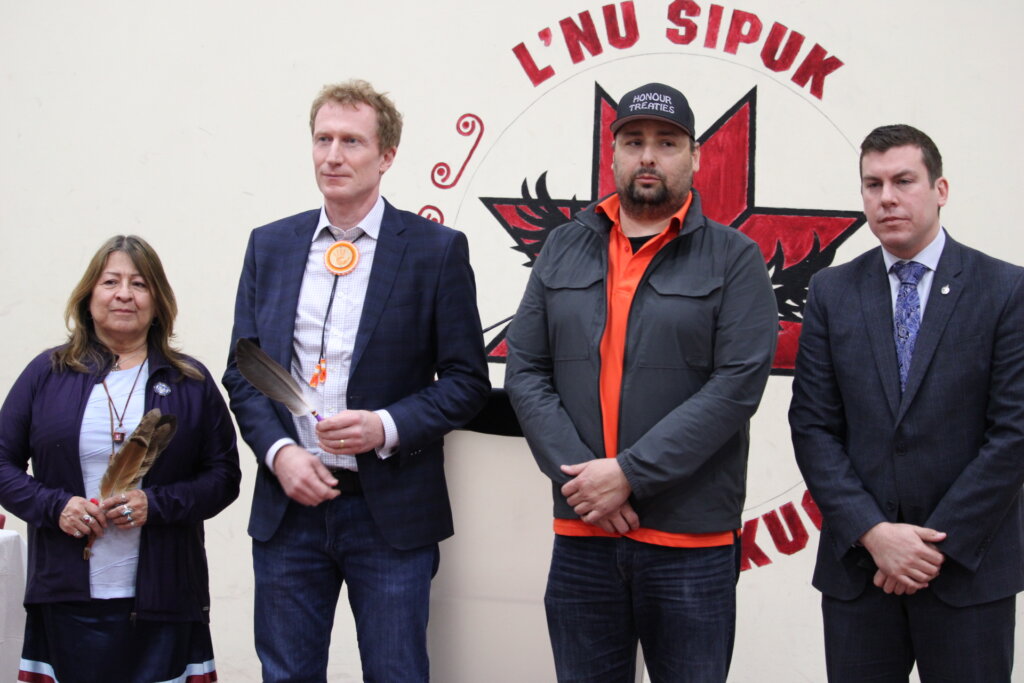
The federal funding is also earmarked to help with commemorative things like the installation of a plaque to honour the missing children who attended the residential school.
“Canada has consistently denied the existent scope and pain that has been suffered by communities throughout the country and that is ongoing,” Miller told the crowd. “It’s important to mark these events with some humility and understanding.”
He said there are about 70 ongoing grave-recovery projects across the country. Canada has 130 former residential school sites.
“It doesn’t mean one project, one site,” he said. “There are still places where people have not decided whether they should go forward.”
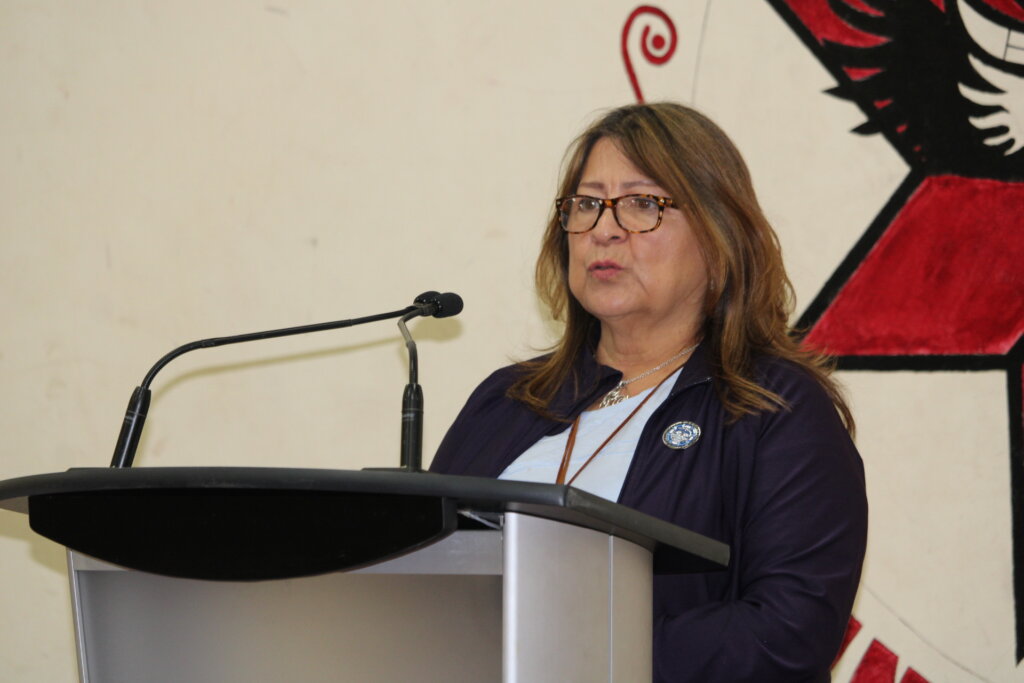
Mi’kmaq elder and residential school survivor Dorene Bernard said the funding will help with healing initiatives for the 70 survivors from Sipekne’katik.
“Survivors want thorough research of the (school) site, including all the surrounding areas, and are hoping that it will locate burial sites that will be protected,” Bernard said.
Kings-Hants MP Kody Blois attended Hants East Rural High School, just minutes up the road from the former Residential School site. He admitted he learned more from talking with residential school survivor Roger Lewis then he did in school.
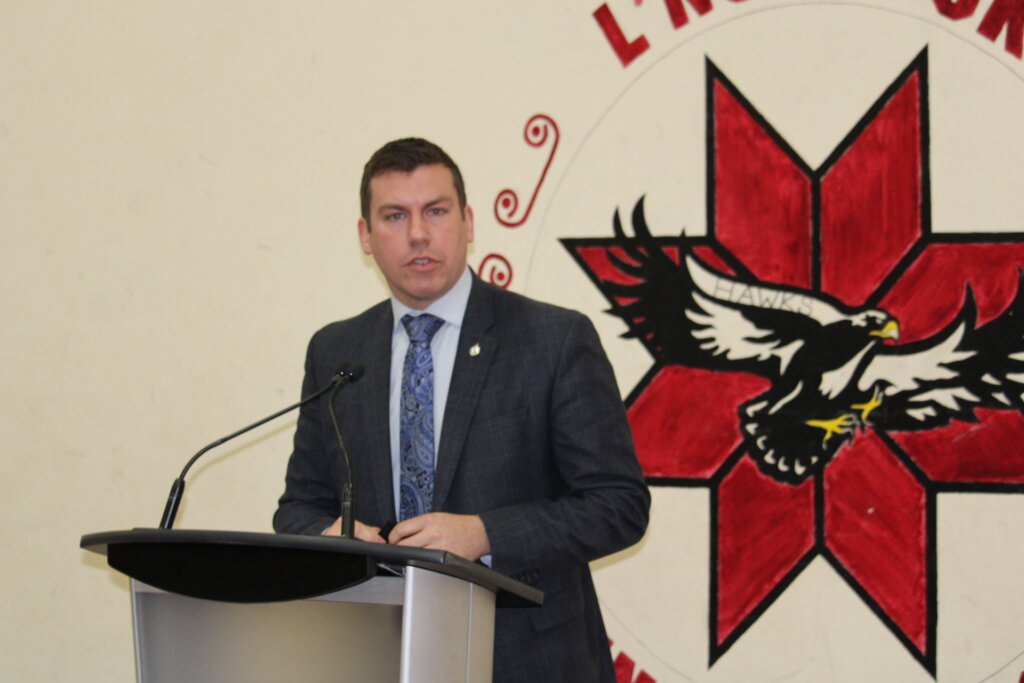
The Laker News asked if there was an opportunity to have more about the Shubenacadie Residential School put into the curriculum for students, especially at HERH. He said he wasn’t ignorant to the fact there were Residential Schools.
“For me one of the most important moments in even understanding what happened here at Shubenacadie was with Roger Lewis, the curator of history at the N.S. Museum and a Residential School survivor himself,” said Blois. “For him to explain this is where the boys dormitory was, this is where the girls dormitory was. How they went to prayer after breakfast, and on weekends how they were required to go work on farmers fields.”
Blois said some of the public education is in the provincial domain. The previous day before the funding announcement, Blois, Jaime Battiste, the MP for Sydney-Victoria, and Minister Miller were in Annapolis Valley First Nation.
“We talked about some of the important Treaty education that former Premier (Stephen) McNeil had started and the province has continued,” he said. “That type of initiative is extremely important.
“I do think its important to learn about this, not just on residential schools but on the path to reconciliation.”
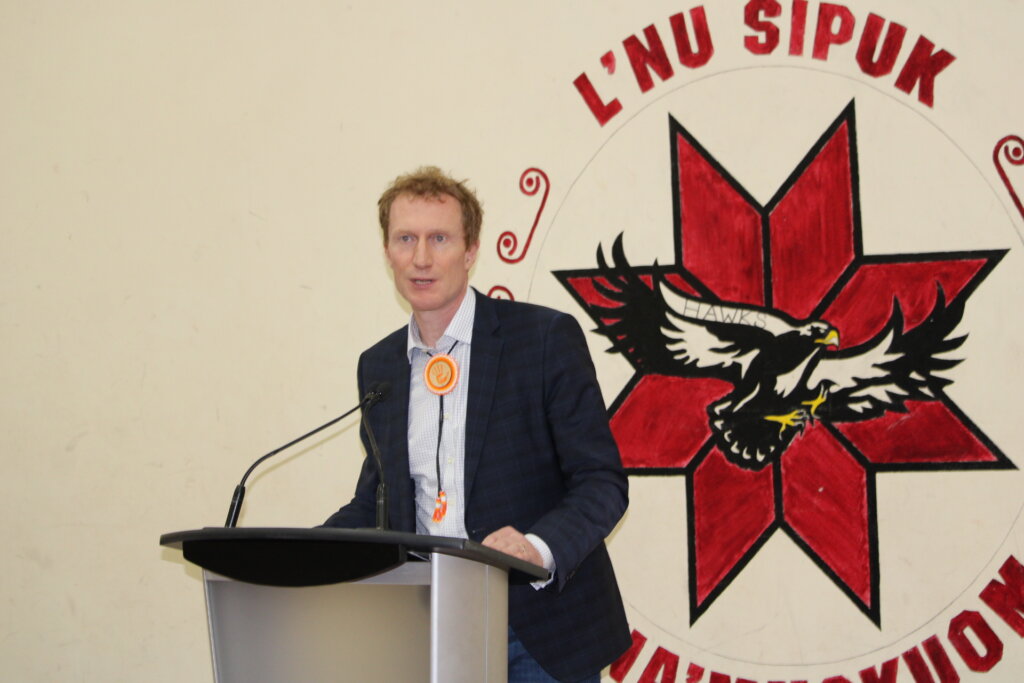
Miller said the announcement is just the tip of the ice berg, echoing comments Chief Sack made. He commended Bernard for the work she is doing, saying he couldn’t imagine being in her shoes.
“The role is on us on behalf of Canada to keep advocating among our own people in what needs to be done in the next few years,” said Miller in his opening. “It won’t be an easier or fast way out.”

